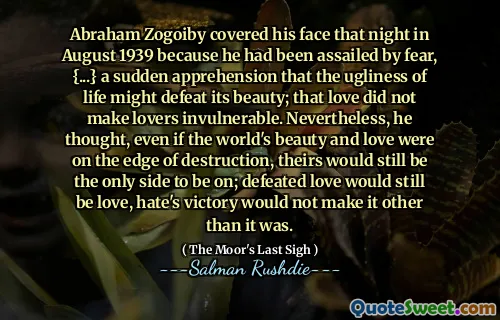We look at the galaxy and fall in love, but the universe cares less about us than we do about it, and the stars stay in their courses however much we may wish upon them to do otherwise. It's true that if you watch the sky-wheel turn for a while you'll see a meteor fall, flame and die. That's not a star worth following; it's just an unlucky rock. Our fates are here on earth. There are no guiding stars.
In "The Moor's Last Sigh," Salman Rushdie reflects on humanity's fascination with the cosmos, expressing how we romanticize the galaxy while highlighting our insignificance in the vast universe. He suggests that despite our hopes and wishes, the universe remains indifferent to our desires, with celestial bodies continuing their paths unaffected by human longing. This notion emphasizes the futility of seeking destiny among the stars.
Rushdie further illustrates that moments of beauty, like a falling meteor, are transient and not guiding forces; they represent fleeting occurrences rather than meaningful constellations to follow. He concludes that our true destinies are grounded on earth, suggesting that we should look inward and acknowledge that there are no external stars to guide us through life's journey.






